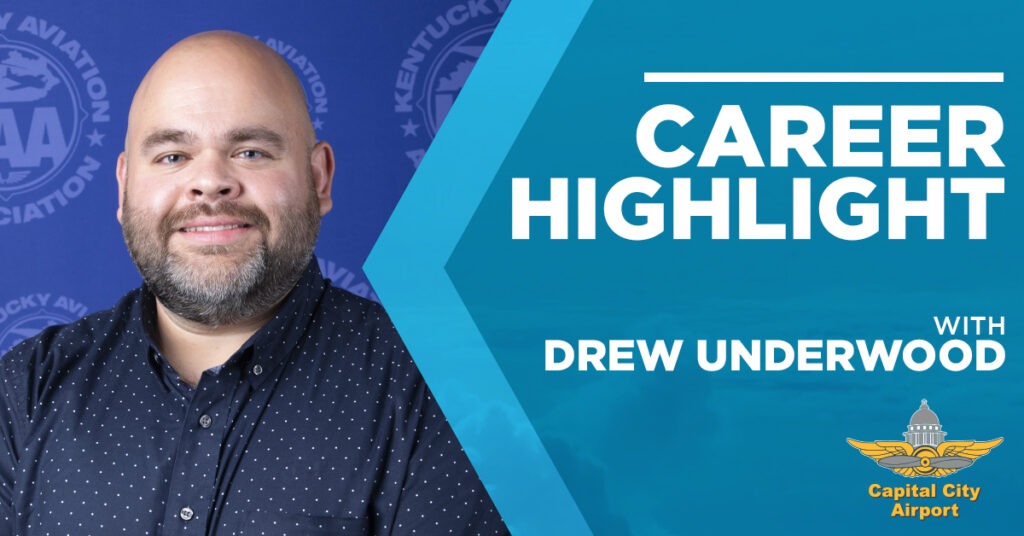While serving as the Executive Director for DreamFlight Charities, Drew Underwood’s daily responsibilities also include managing Capital City Airport in Frankfort, Kentucky. While his introduction to Kentucky’s aviation industry is a little less common, we hope that this career highlight will offer some insight to yet another, often overlooked, aspect of the aviation community.
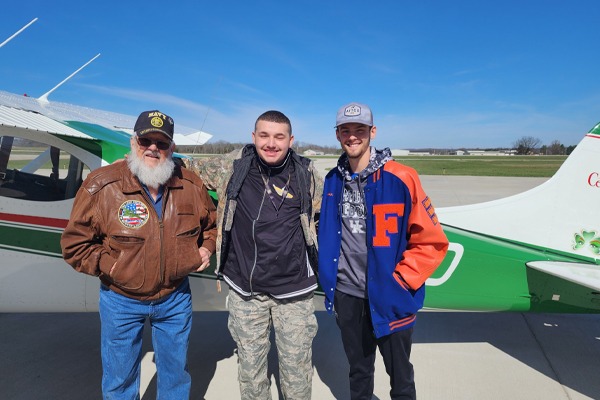
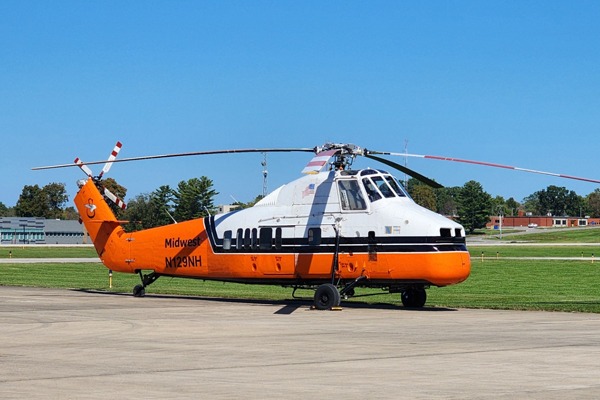
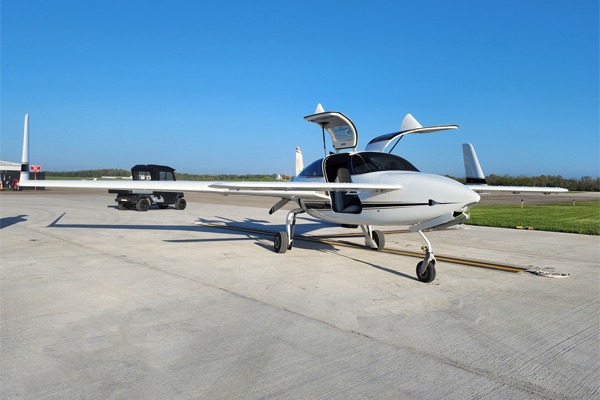
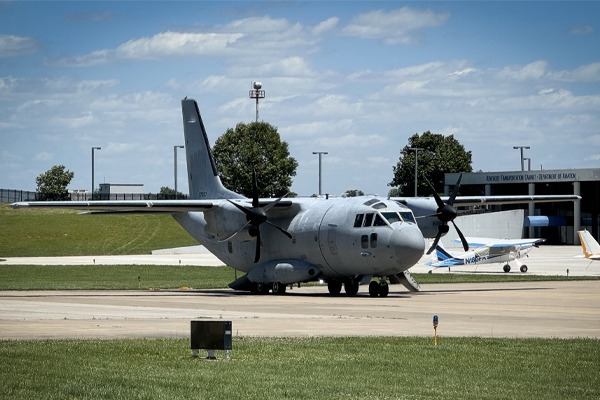
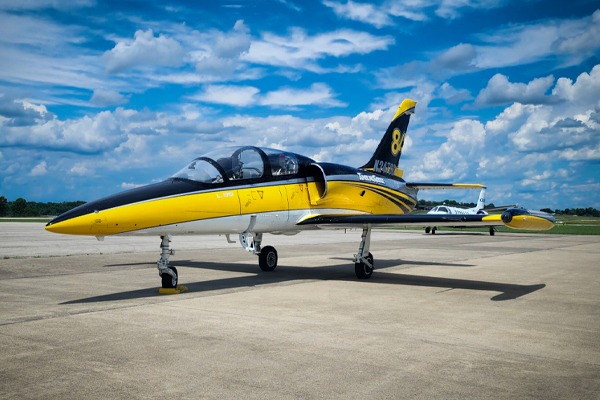
Tell us a little about your aviation background and how you developed an interest in aviation.
Throughout high school, I had my sights set on a career in professional aviation. My ideal vision for the future was like many aspiring pilots – sitting behind the controls of a large Boeing for some major airline. Unfortunately, this was around 9/11, so many of those pilots were being furloughed as people got comfortable flying again. Since the outlook for that profession looked uncertain, I considered becoming a mechanic, but my guidance counselor was unaware of programs like those offered by KCTCS and recommended that I pursue a degree in engineering.
I ended up attending the University of Louisville’s J.B. Speed School of Engineering, but it was far from what I had imagined or was looking for (although it is certainly a great program!). Sadly, I ended up walking away from aviation altogether, finally obtaining my bachelors in a completely different field.
Later on, I eventually started my own business. With some flexibility and freedom in my schedule, I decided to at least pursue my Private Pilot License through Wings Flight Training in Danville. It was through my connections there that the vision for DreamFlight was cast, eventually connecting me with the opportunity in which I now serve in at Capital City Airport.
Thinking about your day job, what requirements were there in taking on the role of an airport manager?
From the state’s standpoint, there was no real requirements in assuming this role, although I’m sure that management experience in some capacity was deeply considered. This may come as a surprise to many, but no aviation experience or certifications were necessary either.
What does a typical day at work look like for you?
This is my favorite thing about my job – every day is different. We may be focused on accommodating a volume of transient aircraft one day, only to walk into construction meetings the next. I find myself becoming extremely unmotivated when having to do the same task over and over, but this job is constantly presenting new challenges and problems for me to solve.
That seems like a lot of responsibility for sure - but what about the rewards?
With my position falling under the Kentucky Department of Aviation (and by extension the Kentucky Department of Transportation), it is a welcome thing to have access to the benefits that come along with being a state employee. That aside, I really take my position and our operations very seriously. We are the airport for Kentucky’s capital city, and I want to help our location become a model for other airports throughout the state. While that’s a daunting task at times given the intricacies of operating under state regulations, it has really given me a creative outlet and change of pace that I seem to be constantly looking for.
What seems to be the biggest challenge for you in your career as an airport manager?
My situation is somewhat unique, seeing as I don’t report to an airport board, municipality, or some other gathering of local government officials. On the flip side, we do operate under more scrutiny and have a prescribed method of navigating the bureaucratic process in trying to get things done. While I tend to often move at a fast pace, this job has encouraged me to slow down a bit. It’s bittersweet – I like to see progress happen fast, but I’m also enjoying some time to find rest and better pace myself.
Is there a particular quality or character trait that you feel serves someone well with your occupation?
Time management and attention to detail are key. The more you observe operations at your local airport, you really begin to realize all that is at stake. We interact daily with multi-million dollar aircraft, and a simple misfueling can lead to a catastrophic event. Complacency is likely our biggest nemesis, and I find myself constantly reminding my team to be hyper-vigilant and to avoid merely going through the motions when it comes to regular, daily tasks.
What makes aviation so interesting for you?
I love being around airplanes – it’s really as simple as that. Every time I see an aircraft take off, regardless of its type, I’m amazed that we have been able to engineer something that can defy gravity like that. I love seeing humanity push the limits of innovation, and there is plenty more in store for our industry in the years to come.
Are there any memorable moments that stand out for you across your career or flying in general?
Looking back, it has been interesting to see how everything has led to this specific moment in my career. When I initially stepped away and sidelined my aviation interests, I worked for numerous non-profits while also serving in a ministerial capacity. And yet, as eclectic as my skills are, they are all serving me well in my role here at Capital City Airport, so I don’t feel like any of it was in vain.
I think the most exciting thing for me is to see a completed project or event come together. We have been pushing a lot in terms in community engagement since my arrival, and it has been fulfilling to see the fruits of those efforts.
How do you feel about the current state of the aviation industry as an airport manager?
I’m sure to repeat a lot of things already addressed through this site and messaging through DreamFlight’s social media channels, but I really hope that Kentuckians can come to grasp what a key player we are in the aviation industry, both on a national and worldwide scale. It’s a bit more obvious to those of us in the thick of it, but I am constantly trying to open the eyes of our community members in helping them realize just how much of an asset their local airport truly is.
There is a lot of work to be done in inspiring and enabling the next generation of industry workers, but I am hopeful. I’m seeing new collegiate and certificate programs popping up, and we are even working on trying to revive aviation education here in Frankfort. It’s going to take commitment and consistency, and I want to do everything I can to encourage others to labor in helping Kentucky retain its place as an industry leader.
If you could talk to the younger version of yourself, is there anything you would say or encourage him to do differently?
I ask myself this question a lot and have to force myself not to focus so much on the past, as is my tendency. I would like to say that I would encourage myself to not waiver in my initial interests in aviation, but then I likely would not have developed the skillset or relationships that I have today. If I had not stepped away and pursued something else in college, I wouldn’t have even met my wife – those are some of the deep ramifications that just overwhelm me when thinking through this question.
Most likely, I would encourage myself to be patient, to appreciate opportunities to rest, and not to take for granted opportunities to grow and learn. I certainly appreciate them now and wish I had the foresight to realize how they could impact my future.
Sounds great! Last question - what is your favorite aircraft?
I have always been fascinated by Burt Rutan’s creations. The canard style looks and performs so differently. I’ve been fortunate to see a few Velocity’s in my time here at Capital City, and I’d love to own or at least fly one sometime in the near future.
Drew will be the first to admit that his approach to a career in aviation is unorthodox and, in many ways, wants to help others avoid becoming discouraged due to a lack of education when it comes to the industry. That’s one reason why he and so many others at DreamFlight Charities strive to inform and empower students with an expressed interest in aviation, all while fueling a passion for flight through the organization’s many programs and services.

